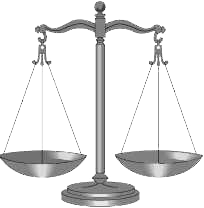Do Lawmakers Legally Insider Trade?
Courtesy of Damien Hoffman at Wall St. Cheat Sheet

Lawmakers possess many perks. However, legal insider trading may be the biggest fringe benefit of all.
A study* released by Professor Alan Ziobrowski at Georgia State University concluded legislators in Congress make “significant abnormal returns.” Moreover, active traders outperform corporate executives. “We have every reason to believe they are trading on information that the rest of us don’t have,” reports Ziobrowski.
How the hell is this bullshit going on? Craig Holman at consumer watchdog organization Public Citizen notes, “The Securities and Exchange Act does not apply to members of Congress, congressional staff, or even lobbyists.” Outraged?
If you are a voting citizen, your public representatives can legally trade investment vehicles based on information received at work. And much information is gleaned long before trickling down to the good ‘ole People. Thus, as you already deduced, a major conflict of interest exists when your political representative must choose between your needs and those of his/her portfolio.
This is another example of the cosmic irony in which Wall Street is overseen by Washington yet no one is overseeing DC. During my interview with Congressman Alan Grayson he explained the importance of auditing the Federal Reserve. While we’re making a list and checking it twice, let’s get lawmaker insider trading into the “Must Do Now” column.
* The study used hundreds of personal financial disclosures and more than 6000 stock transactions by members of Congress going back up to 15 years.
(Source: American Public Media.)
Note: Wall St. Cheat Sheet is offering a FREE 14-day, no risk trial of our Premium Newsletter – just click here.
****
This issue Damien raises came up here before, back in July, I wrote:
Insider trading is illegal, but the definition of insider trading is not inclusive enough. Government employees, buying and selling on non-public information, clearly violates the spirit of insider trading laws, but till now has been overlooked.
Bill Aims to Prevent Use of Insider Financial Information by Federal Workers
With the federal government increasingly involved in the financial affairs of private companies, a pair of lawmakers has proposed prohibiting members of Congress and other federal employees from trading stocks based on non-public information obtained from congressional or federal agency activity.
The bill (
The measure would also prevent outsiders from trading stocks based on private information passed to them from legislative or executive branch employees.
The legislation, sponsored by Brian Baird , D-Wash., and House Rules Chairwoman Louise M. Slaughter , D-N.Y., would change House rules to bar members and staff from disclosing non-public information related to a publicly traded company…
“We’ve reached a point where the more the government is involved in the market, the greater the potential for abuse of insider information,” said Baird…
Slaughter noted that in the past year, Congress has been involved in bailing out financial services firms and overseeing the Troubled Asset Relief Program. She said she is particularly concerned that political intelligence firms were trying to obtain information from congressional staff on pending legislation that could affect investment decisions.
“Congress and federal employees have had early access to so much sensitive information that can seriously affect the stock market, that we cannot wait any longer to close these loopholes,” Slaughter testified to the subcommittee…
Watchdog groups say that unlike the private sector, members of Congress have avoided any regulation of their trading based on the information they are privy to on the job.
“It is kind of bewildering that it is perfectly legal for members of Congress and their staff to use this kind of information,” said Craig Holman,…
Full article here.


